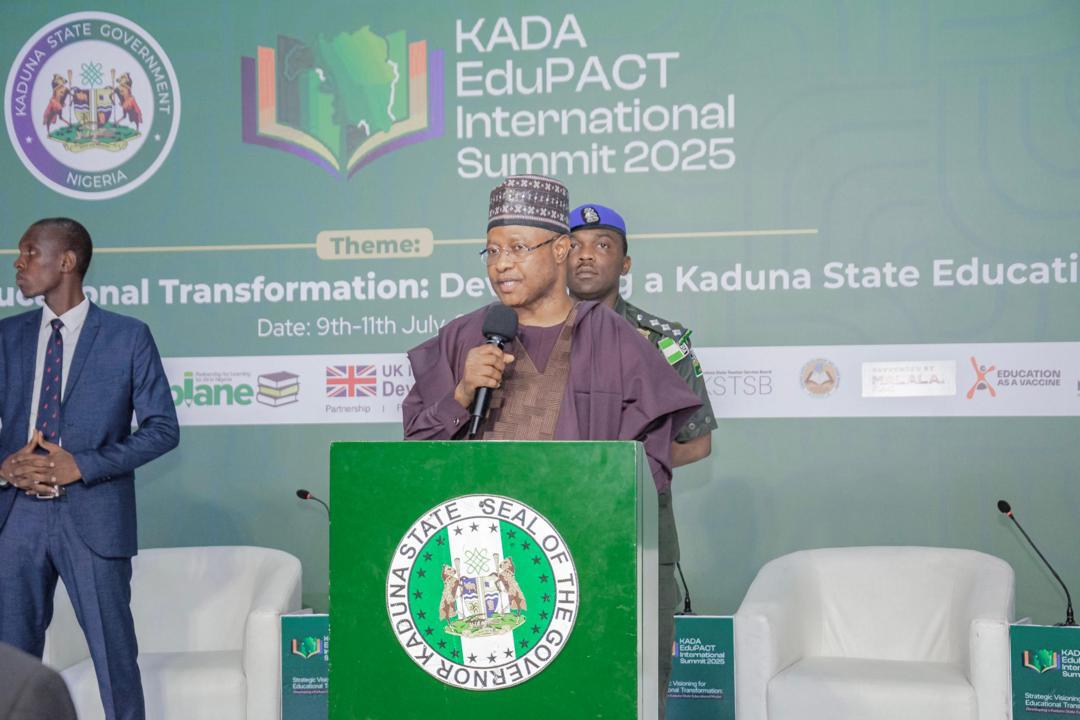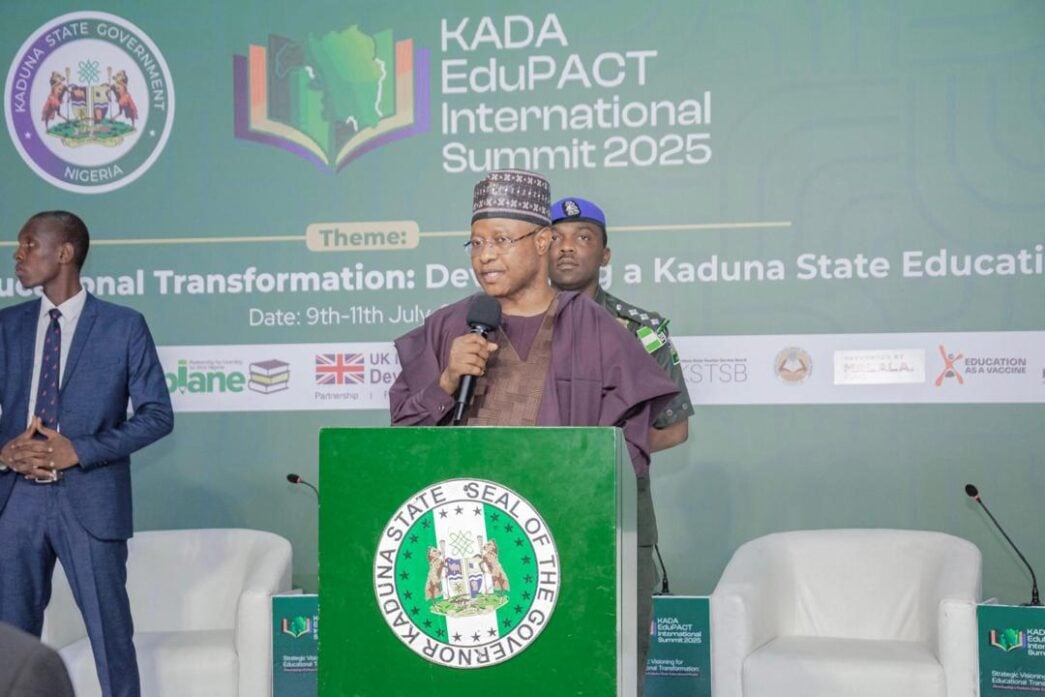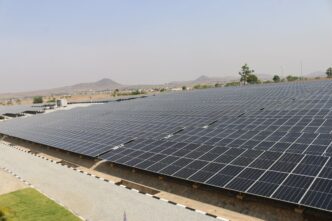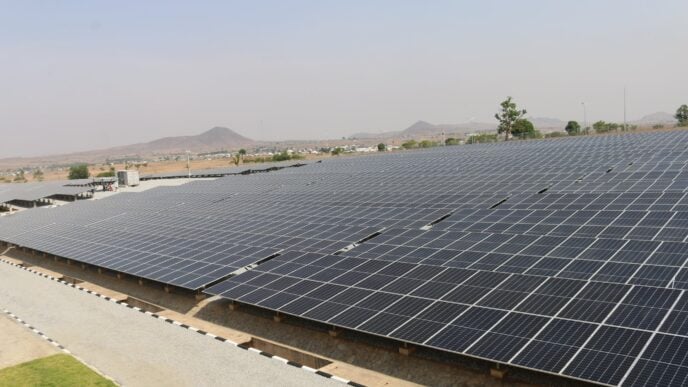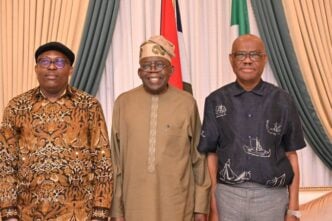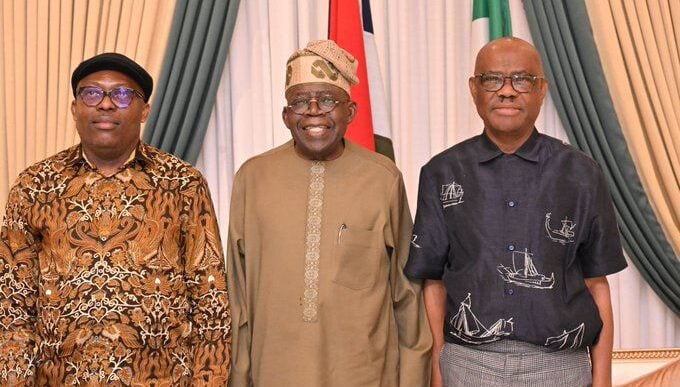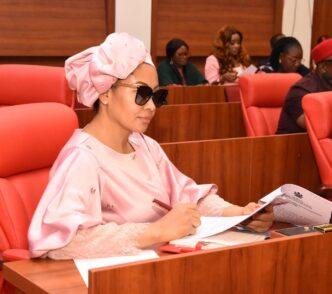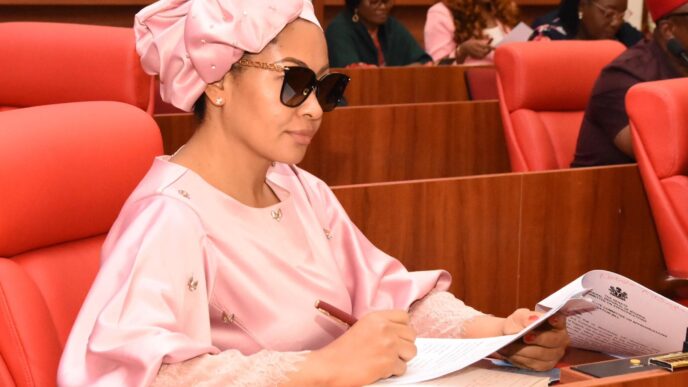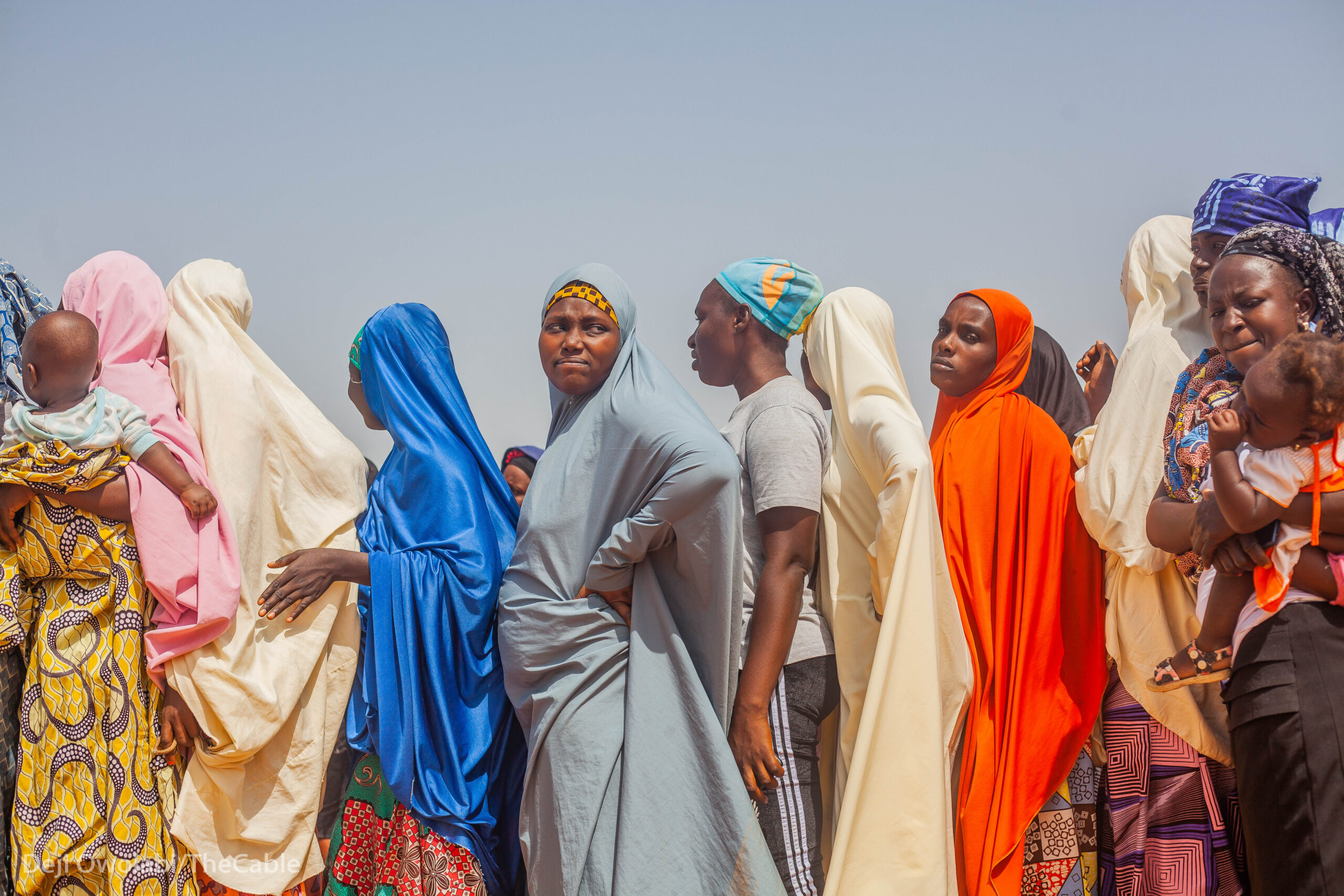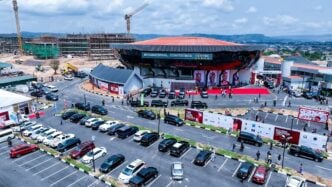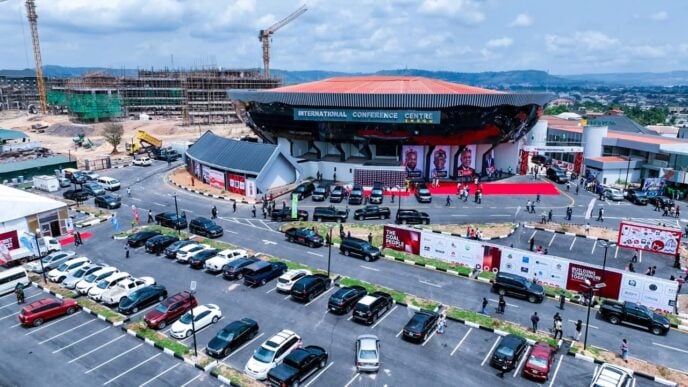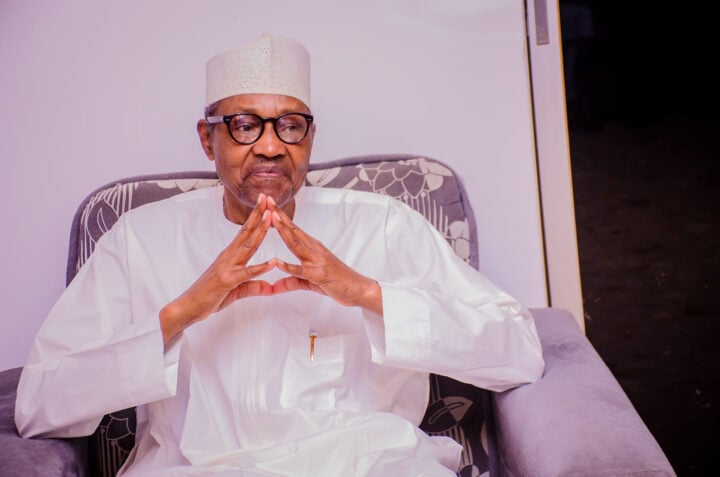BY ALIYU A. AHMED
In a nation often enamoured with the optics of infrastructure – towering flyovers, imposing government edifices, and gleaming new highways – Senator Uba Sani, the Governor of Kaduna State, is carving out a unique legacy. His administration, while making impressive strides in infrastructure across both urban and rural Kaduna, is charting a deeper course — one that views roads and buildings not as ends, but as enablers of a larger mission: the liberation of people from the vicious cycles of multi-dimensional poverty. In just over two years in office, Uba Sani has redefined what it means to govern, taking leadership beyond brick-and-mortar and placing Kaduna on a bold trajectory of human capital development.
In Kaduna State, a striking example of visionary governance has emerged, under the leadership of Senator Uba Sani. While his administration has overseen massive infrastructural investments, especially in rural communities, these visible achievements are not the summit of his ambitions. Governor Uba Sani’s leadership boldly ventures into the realm of human capital development, the vital foundation upon which sustainable growth and societal transformation depend.
Unlike many political leaders whose focus remains largely on erecting physical projects, Governor Uba Sani is a firm believer that to lift the greatest number of Kaduna’s people from the grips of multi-dimensional poverty, government must invest heavily in healthcare, education, agriculture, safety and security. These pillars, he argues, are the bedrock of a resilient society and the pathways to prosperity.
His philosophy aligns closely with that of the globally renowned philanthropist, Bill Gates, who famously asserted: “By unleashing human potential through health and education, every country in Africa should be on a path to prosperity — and that path is an exciting thing to be part of.” Governor Uba Sani’s governance is informed by this compelling truth. He understands that multi-dimensional poverty — where deprivation manifests not only in income but in education, health, nutrition, and opportunity — cannot be eliminated by infrastructure alone. It demands deliberate and strategic investments in people.
Advertisement
Governor Uba Sani’s tenure represents a transformative chapter in Kaduna’s development story. From the outset, he set a clear vision: while roads and buildings are essential, the ultimate aim is to empower people through health, education, and economic opportunity.
Kaduna State has indeed witnessed a surge in infrastructural projects under his watch — rural roads that connect farmers to markets, health centers upgraded to provide quality care, schools rehabilitated and built anew, and security facilities enhanced to protect lives and property. These initiatives have brought tangible relief and improved living conditions, especially in communities long neglected.
But Governor Uba Sani insists this is just the beginning. His government’s investments in human capital address the root causes of poverty and social vulnerability, seeking to create a virtuous cycle of opportunity and growth.
Advertisement
Good health is a prerequisite for human flourishing. The Governor’s administration has prioritised the revitalisation of healthcare infrastructure across Kaduna, coupled with initiatives to improve service delivery, maternal and child health, and access to essential medicines.
Recognising that illness can entrench families in poverty, the Kaduna State government has supported immunisation programmes, trained health workers, and enhanced rural health clinics. These efforts have reduced mortality rates and improved overall well-being, enabling children to attend school and adults to engage productively in economic activities.
Health investments are not merely reactive but preventative. Governor Uba Sani’s administration supports community health education, emphasising nutrition, sanitation, and disease prevention. By reducing the health burden, Kaduna is building a healthier workforce and more resilient communities.
Governor Uba Sani’s unwavering commitment to education is perhaps the most defining feature of his administration. He regards education not as a service to be administered, but as a powerful tool for individual empowerment and societal transformation.
Advertisement
His comprehensive, systems-based approach to educational reform embodies this conviction. It spans improving access, modernising infrastructure, enhancing teacher capacity, and leveraging technology to deliver quality learning experiences.
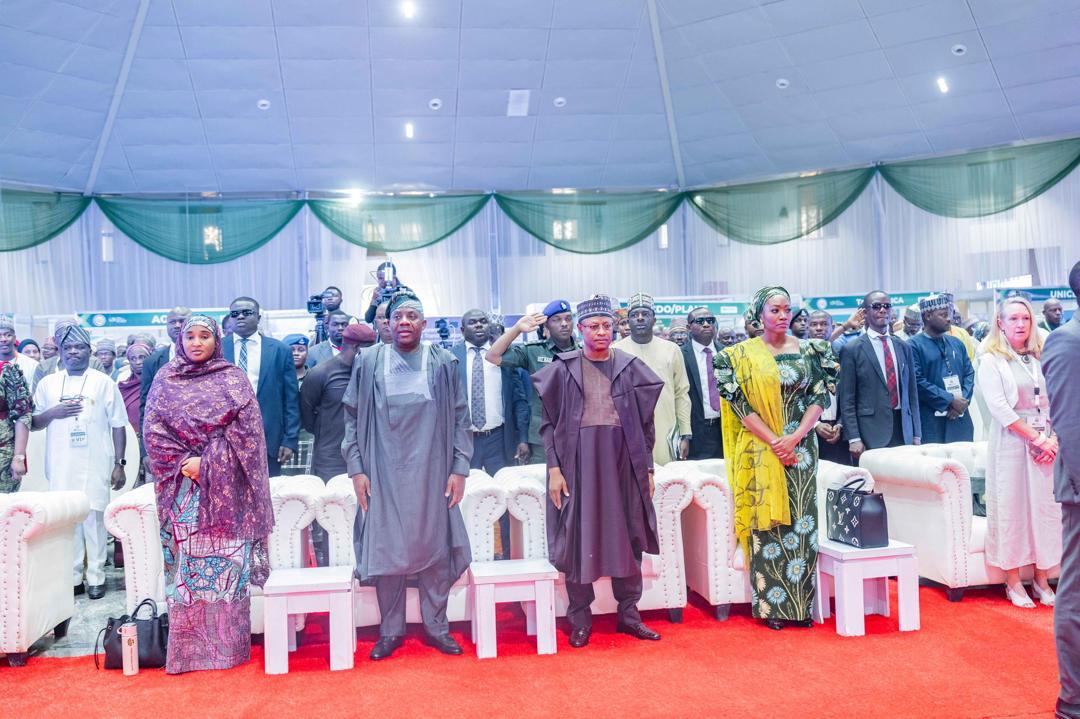
At the KADA EduPACT International Summit 2025, Governor Uba Sani articulated a bold vision for the Kaduna State Education Model. He emphasised moving beyond fragmented efforts to a unified, data-driven, forward-looking strategy that centers children and youth within the state’s development agenda.
His administration has reduced tuition fees in state-owned tertiary institutions by 40%, leading to significant enrollment increases. This ensures that no child is denied education because of financial hardship — a major barrier in many parts of Nigeria.
Advertisement
Moreover, his administration’s Reaching Out-of-School Children (ROOSC) Project exemplifies his resolve to eradicate educational exclusion. Over 1,000 classrooms have been constructed or rehabilitated; 62 new secondary schools commissioned; and instructional materials worth millions distributed. A digital-first strategy supports school operations, while real-time data dashboards track enrollment, attendance, and completion to guide policy.
Governor Uba Sani recognises that academic education is only part of the solution. For youth empowerment and economic resilience, skills acquisition and vocational education are critical.To this end, his administration has established three Institutes of Vocational Training and Skills Development at Rigachikun, Samaru Kataf, and Soba, all commissioned in June 2025 by President Bola Ahmed Tinubu. These centers are certified by the National Board for Technical Education as Nigeria’s best-equipped skills development hubs.
Advertisement
The Institutes offer training in welding, solar technology, information technology, artificial intelligence, and other trades, preparing Kaduna’s youth for the rapidly evolving job market. These centers aim to position Kaduna as a national hub of technical excellence, bridging the persistent skills gap that hampers local economic growth.
The iconic Panteka Market, Africa’s largest informal skills center, has undergone modernisation, equipped with state-of-the-art tools and training aligned with the Nigerian Skills Qualification Framework. This upgrade is designed to uplift over 38,000 apprentices, preserving traditional craftsmanship while introducing modern techniques and certifications.
Advertisement
Governor Uba Sani’s human capital investment philosophy extends fundamentally to agriculture — a sector where the majority of Kaduna’s poor find their livelihood.
He understands that when people live in poverty, many rely on subsistence farming with little or no cash income. Such dependence leaves families vulnerable to climatic shocks, food insecurity, malnutrition, and the inability to afford education or healthcare.
Advertisement
Thus, Governor Uba Sani is aggressively investing in agriculture and agribusiness. Kaduna’s agriculture budget has skyrocketed from N1.4 billion in 2023 to N74.2 billion in 2025, reflecting the priority accorded to food security, rural livelihoods, and economic diversification.
He has initiated large-scale projects like the Special Agro-Industrial Processing Zone (SAPZ) in Chikun LGA, backed by the African Development Bank, aimed at transforming Kaduna into Nigeria’s agro-industrial capital. The Governor’s vision aligns with a continental aspiration: Africa should more than double its agricultural productivity, transitioning from a net food importer to a net exporter. This shift would underpin food security, rural prosperity, and broad-based economic growth.
Governor Uba Sani is well aware that no amount of development can thrive without peace and security. His administration has made the restoration of safety a top priority.
Through a combination of community engagement, intelligence-driven operations, and inter-agency collaboration, Kaduna has witnessed profound improvements in security. Safe communities enable children to attend school, farmers to cultivate their lands, and businesses to flourish. The Governor acknowledges that security is integral to human capital development — without it, education, health, and economic initiatives falter.
Governor Uba Sani’s vision for human capital is complemented by efforts to broaden financial inclusion and economic participation. His 2023 Executive Order on financial inclusion resulted in the registration of over 2.5 million previously unbanked Kaduna citizens, facilitated by innovative fintech solutions like Credo and PocketMoni. This initiative has empowered thousands to save, access credit, and engage in entrepreneurship — crucial to lifting households out of poverty.
The Kaduna Economic and Financial Inclusion Summit (KEFIS) held earlier this year, further amplified this agenda, fostering partnerships that enable inclusive economic growth.
What distinguishes Governor Uba Sani is his holistic, human-centered approach to governance. For him, infrastructure is indispensable but insufficient. He understands that roads and buildings are pathways to opportunity only when people are healthy, educated, and secure enough to take advantage of them.
His administration’s multi-sectoral investments are deliberate, mutually reinforcing interventions aimed at unleashing human potential. These investments embrace a future where Kaduna’s youth can dream, learn, and earn with dignity.
His governance reflects a broader African aspiration captured by Bill Gates’ words: “By unleashing human potential through health and education, every country in Africa should be on a path to prosperity.” Kaduna is on that path, guided by a leader who measures progress not only in kilometers of road built but in lives transformed.
Governor Uba Sani’s vision materialises concretely in initiatives like the KADA EduPACT International Summit 2025. The summit developed a Strategic Roadmap focusing on six pillars: expanded access and equity; quality teaching and learning; sustainable financing; digital transformation; gender equity and inclusion; and system resilience and governance.
This roadmap aims to ensure education is accessible to all, particularly marginalized groups such as girls, learners with disabilities, nomadic populations, and children in conflict-affected areas.
By redesigning curricula to nurture critical thinking, digital literacy, and global citizenship, Kaduna is equipping its youth with the competencies needed in a rapidly changing world.
Governor Uba Sani’s leadership is a beacon illuminating a new paradigm in Nigerian governance — one that goes beyond the allure of infrastructure to embrace the profound and lasting power of human capital development.
Under his stewardship, Kaduna State is not just building roads or erecting structures; it is constructing futures. It is nurturing health, cultivating knowledge, fostering skills, ensuring security, and enabling economic participation. This comprehensive approach is Kaduna’s human renaissance — a bold experiment in inclusive, sustainable development.
Governor Uba Sani’s governance challenges the rest of Nigeria: true development lies not in monuments of concrete and steel, but in the limitless potential of the people. By investing in their health, education, agriculture, and security, Kaduna is charting a path from poverty to prosperity — a path as inspiring as it is necessary.
As the Governor himself articulated, “Let us build an education system that is inclusive, technology-driven, and resilient — one that reflects the best of our people and their boundless potential.” This is governance beyond brick-and-mortar. This is leadership that truly serves. This is the future Kaduna envisions, and it is a future worth embracing.
Ahmed, A Developmental Expert, lives in Barnawa, Kaduna.
Views expressed by contributors are strictly personal and not of TheCable.
